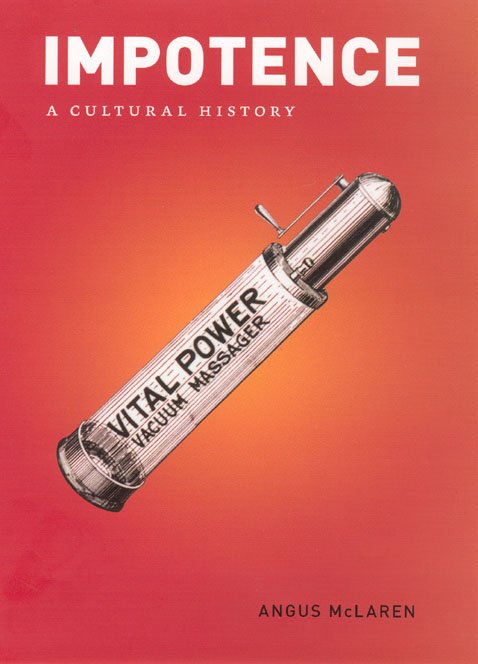Review: McLaren, Impotence

Last Monday Salon.com ran an in-depth review of Angus McLaren’s new book Impotence: A Cultural History. Drawing from McLaren’s work, reviewer Laura Miller walks through several centuries of male sexual failure and the various theories behind its causes and cures to explore its social impact throughout the history of western civilization. But according to Miller, it’s what all this history has to teach us about our attitudes towards impotence today that make McLaren’s book notable. Miller writes:
The final chapters of Impotence, covering the last 50 years of sexual liberation, feminism and Viagra, are the most interesting. McLaren’s long historical view lends substance to his argument that our current, “enlightened” take on sex hasn’t necessarily made things easier for the average guy. The idea that manliness consists of being able to sexually satisfy a woman—not merely penetrate and impregnate her—increased the pressure. So did the rise of sex therapy, with its notion of sex as a body of sophisticated techniques requiring planning and practice—sex as work, in effect. A mid-20th-century preoccupation with “simultaneous orgasm” as the pinnacle of marital love and a necessity for any truly happy couple set many couples up for disappointment and insecurity. With the advent of feminism, women who gained the ability to support themselves economically had one less reason to settle for a sexually unexciting spouse.
Viagra seemed to promise relief at last, but as McLaren points out, only half of the men who tried it ever bothered to refill their prescriptions. As reassuring as it was for intimacy-averse guys to be offered a purely mechanical solution to their sexual problems, many found it somehow still wasn’t enough.…“A flaccid penis,” McLaren writes, can “give pleasure and result in orgasm”—surely a revelation to many. What it can’t do, however, is fulfill the fantasy of ever-rigid, ever-aggressive, ever-dominant manhood. Until that changes, potency—and therefore impotence—will always be about a lot more than just getting it up.
Read a special feature drawn from the book: “Two Millennia of Impotence Cures”.